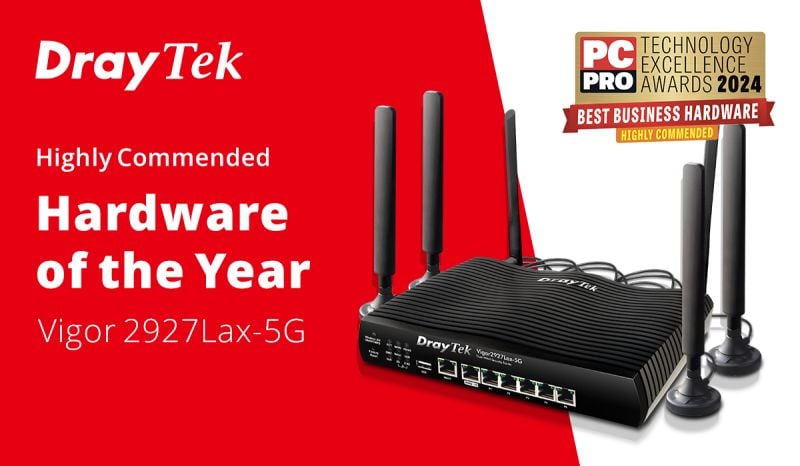What to Look for in a Business Router (and Why It Matters)
In today’s digital-first business environment, your internet connection is more than just a utility, it’s the backbone of your operations. Whether you’re running a small local business or managing a growing enterprise, the quality of your router can directly impact productivity, customer experience, and even your bottom line.
Yet, many businesses overlook the importance of choosing the right router. With so many models and features available, it’s easy to default to consumer-grade equipment or outdated hardware. But a business router is not just about getting online, it’s about staying connected, securely and reliably, under demanding conditions.
So, what should you look for in a business router? And why does it matter so much?
1. Performance and Speed
At the core of any router is its ability to handle data efficiently. Business routers are designed to support multiple users, devices, and high-bandwidth applications simultaneously. Unlike consumer routers, which may struggle under heavy load, business-grade models offer:
• Gigabit Ethernet ports for fast wired connections
• Dual or tri-band Wi-Fi to reduce congestion
• MU-MIMO and beamforming for better wireless performance
If your team relies on cloud-based applications, video conferencing, or large file transfers, a high-performance router ensures smooth, uninterrupted service.
2. Reliability and Uptime
Downtime is costly. A dropped connection during a client call or a failed transaction can damage your reputation and disrupt operations. Business routers are built with reliability in mind, often featuring:
• Failover support (e.g., automatic switch to backup internet)
• Redundant power options
• Enterprise-grade components that withstand continuous use
Look for routers with Service Level Agreements (SLAs) or uptime guarantees from your provider. These ensure your business stays online when it matters most.
3. Security Features
Cybersecurity is a growing concern for businesses of all sizes. Your router is the first line of defence against external threats. A good business router should include:
• Firewall protection
• VPN support for secure remote access
• Intrusion detection and prevention systems (IDS/IPS)
• Automatic firmware updates
Some routers also offer content filtering, guest network isolation, and multi-factor authentication, all essential for protecting sensitive data and maintaining compliance with regulations like GDPR.
4. Scalability and Future-Proofing
Your business will grow—and your router should grow with it. A scalable router allows you to add users, devices, and locations without needing a complete overhaul. Features to look for include:
• Modular design or support for mesh networking
• Cloud-based management portals
• Support for VLANs and multiple SSIDs
Choosing a router that supports future technologies like Wi-Fi 6 or 6E ensures your investment remains relevant as your needs evolve.
5. Remote Management and Monitoring
In a hybrid or multi-site setup, managing your network remotely is essential. Business routers often come with:
• Cloud-based dashboards
• Real-time monitoring tools
• Remote configuration and troubleshooting
This allows your IT team—or your provider—to quickly identify and resolve issues, even if they’re not physically on-site.
6. Quality of Service (QoS)
Not all internet traffic is created equal. QoS features let you prioritise bandwidth for critical applications like VoIP, video conferencing, or cloud platforms. This ensures that essential services run smoothly, even during peak usage.
For example, if your team is on a Zoom call while others are uploading files, QoS ensures the call doesn’t drop or lag due to bandwidth competition.
7. Vendor Support and Warranty
A business router is an investment, and you want to ensure it’s backed by responsive support and a solid warranty. Look for:
• Dedicated business support lines
• Extended warranties
• Access to firmware updates and security patches
Working with a trusted provider like Plum Communications means you get expert advice, installation support, and ongoing maintenance—all tailored to your business needs.
Why It Matters
Your router isn’t just a box with blinking lights it’s the gateway to your business’s digital world. A poor-quality router can lead to:
• Slow internet speeds
• Frequent disconnections
• Security vulnerabilities
• Frustrated employees and customers
On the other hand, a well-chosen business router enables:
• Seamless remote work
• Reliable customer interactions
• Efficient operations
• Scalable growth
In short, it’s a strategic asset that supports everything from day-to-day tasks to long-term innovation.
How Plum Communications Can Help
At Plum Communications, we understand that every business is unique. That’s why we offer:
• Expert consultation to assess your current setup
• Tailored router recommendations based on your size, usage, and goals
• Installation and configuration support
• Ongoing maintenance and monitoring
Whether you’re upgrading your existing network or setting up a new location, we’ll help you choose the right router—and ensure it performs reliably from day one.
Conclusion
Choosing the right business router isn’t just about specs, it’s about aligning your technology with your business strategy. With the right equipment in place, you can unlock better performance, stronger security, and greater flexibility.
Ready to upgrade your connectivity? Contact Plum Communications today to find the perfect router for your business.

